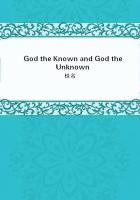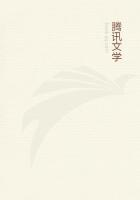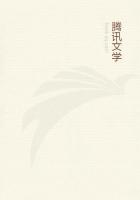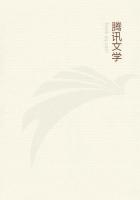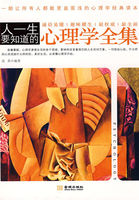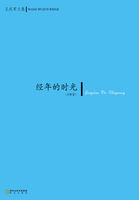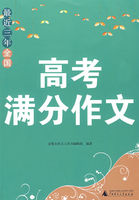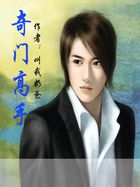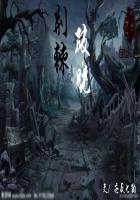THE PERCEPTION OF TIME.
In the next two chapters I shall deal with what is sometimes called internal perception, or the perception of time , and of events as occupying a date therein, especially when the date is a past one, in which case the perception in question goes by the name of memory.To remember a thing as past, it is necessary that the notion of 'past' should be one of our 'ideas.' We shall see in the chapter on Memory that many things come to be thought by us as past, not because of any intrinsic quality of their own, but rather because they are associated with other things which for us signify pastness.But how do these things get their pastness? What is the original of our experience of pastness, from whence we get the meaning of the term? It is this question which the reader is invited to consider in the present chapter.We shall see that we have a constant feeling sui generis of pastness, to which every one of our experiences in turn falls a prey.To think a thing as past is to think it amongst the objects or in the direction of the objects which at the present moment appear affected by this quality.This is the original of our notion of past time, upon which memory and history build their systems.
And in this chapter we shall consider this immediate sense of time alone.
If the constitution of consciousness were that of a string of bead-like sensations and images, all separate, "we never could have any knowledge except that of the present instant.
The moment each of our sensations ceased it would be gone for ever; and we should be as if we had never been....We should be wholly
incapable of acquiring experience....Even if our ideas were associated in trains, but only as they are in imagination, we should still be without the capacity of acquiring knowledge.One idea, upon this supposition, would follow another.But that would be all.Each of our successive states of consciousness, the moment it ceased, would be gone forever.Each of those momentary states would be our whole being."
We might, nevertheless, under these circumstances, act in a rational way, provided the mechanism which produced our trains of images produced them in a rational order.We should make appropriate speeches, though unaware of any word except the one just on our lips; we should decide upon the right policy without ever a glimpse of the total grounds of our choice.
Our consciousness would be like a glow-worm spark, illuminating the point it immediately covered, but leaving all beyond in total darkness.Whether a very highly developed practical life be possible under such conditions as these is more than doubtful; it is, however, conceivable.
I make the fanciful hypothesis merely to set off our real nature by the contrast.Our feelings are not thus contracted, and our consciousness never shrinks to the dimensions of a glow-worm spark.The knowledge of some other part of the stream, past or future, near or remote, is always mixed in with our knowledge of the present thing.
A simple sensation, as we shall hereafter see, is an abstraction, and all our concrete states of mind are representations of objects with some amount of complexity.Part of the complexity is the echo of the objects just past, and, in a less degree, perhaps, the foretaste of those just to arrive.Objects fade out of consciousness slowly.If the present thought is of A B C D E F G, the next one will be of B C D E F G H, and the one after that of C D E F G H I -- the lingerings of the past dropping successively away, and the incomings of the future making up the loss.These lingerings of old objects, these incomings of new, are the germs of memory and expectation, the retrospective and the prospective sense of time.They give that continuity to consciousness without which it could not be called a stream. THE SENSIBLE PRESENT HAS DURATION.
Let any one try, I will not say to arrest, but to notice or attend to, the present moment of time.One of the most baffling experiences occurs.Where is it, this present? It has melted in our grasp, fled ere we could touch it, gone in the instant of becoming.As a poet, quoted by Mr.Hodgson, says, "Le moment où je parle est déjà loin de moi,"
and it is only as entering into the living and moving organization of a much wider tract of time that the strict present is apprehended at all.
It is, in fact, an altogether ideal abstraction, not only never realized in sense, but probably never even conceived of by those unaccustomed to philosophic meditation.Reflection leads us to the conclusion
that it must exist, but that it does exist can never be a fact of our immediate experience.The only fact of our immediate experience is what Mr.E.R.Clay has well called 'the specious present.' His words deserve to be quoted in full:
"The relation of experience to time has not been profoundly studied.
Its objects are given as being of the present, but the part of time referred to by the datum is a very different thing from the conterminous of the past and future which philosophy denotes by the name Present.The present to which the datum refers is really a part of the past -- a recent past -- delusively given as being a time that intervenes between the past and the future.Let it be named the specious present, and let the past, that is given as being the past, be known as the obvious past.All the notes of a bar of a song seem to the listener to be contained in the present.
All the changes of place of a meteor seem to the beholder to be contained in the present.At the instant of the termination of such series, no part of the time measured by them seems to be a past.Time, then, considered relatively to human apprehension, consists of four parts, viz., the obvious past, the specious present, the real present, and the future.Omitting the specious present, it consists of three...nonentities -- the past, which does not exist, the future, which does not exist, and their conterminous, the present; the faculty from which it proceeds lies to us in the fiction of the specious present."

